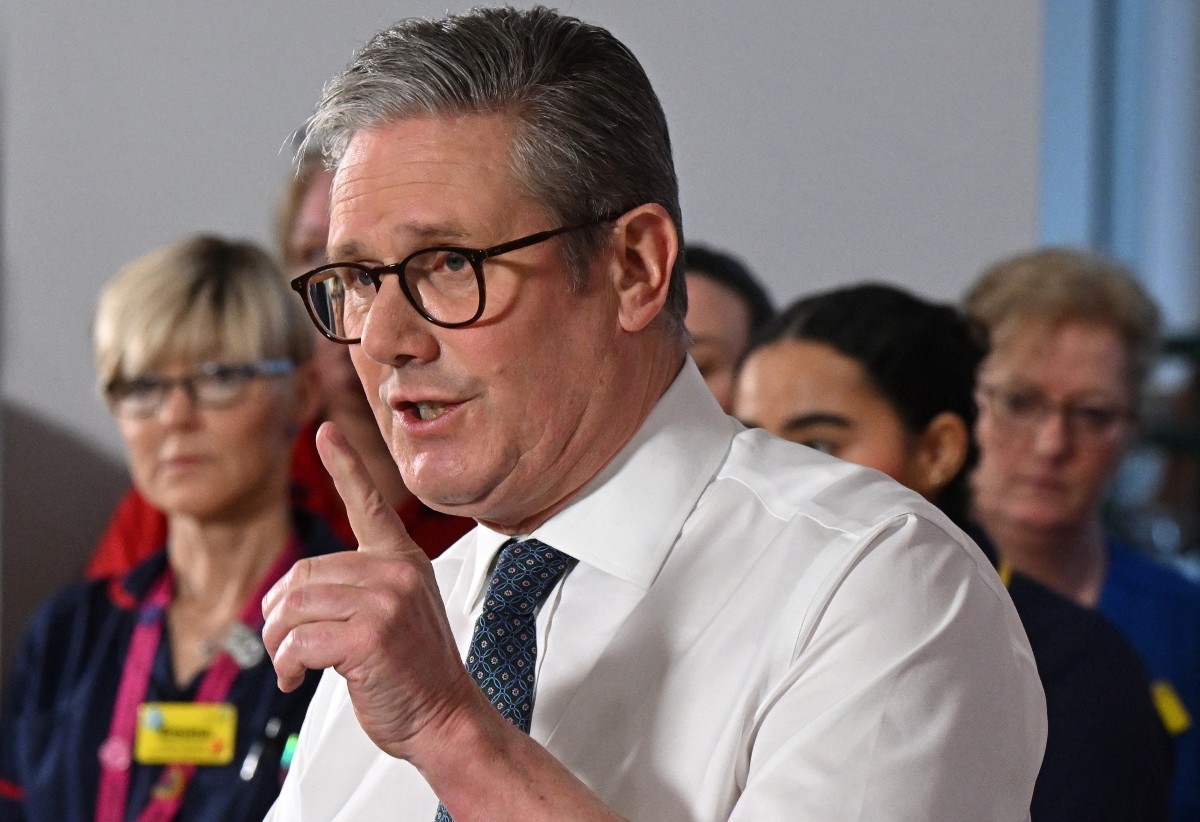Christian women leaders have underscored the urgent need to revive intentional, Scripture-based mentoring among women, describing it as a legacy practice deeply rooted in the Bible and essential for shaping future generations.
They stated this at the Global Virtual Women’s Conference organised by the Christian Women Mentoring Network, with the theme, “The Mentoring Advantage: Influencing Titus 2, Women for Global Impact.”
The virtual conference gathered Christian women leaders from across the globe.
Building on the keynote teaching from Titus 2:3–5, which emphasises the duty of older women to guide younger women in godliness, wisdom, and character, Pastor Ada Babajide said mentoring is not a modern concept but an ancient God-ordained system that women have gradually abandoned.
“Mentoring has an advantage; it’s not new, it has been there all along, but we picked up other strategies and began to ignore it, losing the full benefits, especially woman to woman. Today, we are here to reactivate that mission and revive that call,” she stated.
She noted that much of the modern debate around mentoring—whether it is biblical or merely contemporary—can be settled by returning to Scripture. Citing 2 Timothy 2:2, she highlighted what she called four generations of influence in one sentence, demonstrating the depth and intentionality expected of believers when passing down values and faith.
“This pattern talks about structure, order, and intentionality. Legacy is not accidental; legacy is intentional. If we want our faith to be sustained, we must be deliberate about who we are passing it on to and what we are passing on to them,” she explained.
Pastor Babajide pointed to biblical examples such as Naomi and Ruth, Mary and Elizabeth, and Moses and Joshua, all of whom demonstrated strategic, intentional mentoring relationships. She urged women to mobilise and raise a new generation committed to biblical mentoring.
She shared the definition adopted by Mentoring International, developed by over 60 global ministers, which describes transformational mentoring as taking the initiative to join someone’s life journey and being one of God’s instruments to help that person become who God wants them to become and do what God wants them to do.
According to her, this requires sacrifice, time, resources, and a readiness to commit.
“Mentoring is intentional and volitional; it goes beyond Bible study and prayer. It involves marriage, career, leadership, character formation, and discovering God’s purpose,” she said.
She emphasised that mentors must see themselves only as instruments in God’s hands: “There is no sense of ownership. God will use many people in a mentee’s life. Your role is to join the journey, not control it.”
The network, she added, remains Scripture-centred, relational, and generational.
“Women are encouraged to have mentors, peer mentors, and mentees, representing a three-layer generational model of learning and influence. Whether you lead a ministry, manage a team, head an ushering unit, or teach schoolchildren, there is someone who needs your story,” Babajide stressed.
Drawing from a mentoring process graphic developed by Mentoring International, she explained the biblical model: God’s presence encompasses both mentor and mentee; the Holy Spirit sits at the apex of a triangle that shapes the relationship; and communication flows between all three points. At the centre lies the goal: helping the mentee become more like Jesus in life and leadership.
She outlined practical mentoring steps, including building trust, engaging personally, sharing resources, visiting homes, attending events together, and modelling Christlike conduct. Turning points—visible changes in the mentee’s prayer life, character, and habits—serve as evidence that mentoring is working.
Pastor Babajide stressed that mentoring has a completion stage. “It doesn’t have to be for life; it can be six months, one year, or two years. When it ends, the mentee must pass on the same things to someone else.”
She further referenced God’s call to Gideon in Judges 7, drawing a parallel between Gideon’s 300 soldiers and the present-day need for committed mentors.
“Even though the need is great, God will save the next generation through the few who present themselves, but God will pre-qualify you. You need training, tools, and character so that you do not become a stumbling block to your mentee,” she stated.
She encouraged women to embrace God’s call to nurture, guide, and lead younger believers. “Mentoring is already in us; we are nurturers by design. Now, God is calling us to nurture intentionally, biblically, and generationally.”
A facilitator, Mother Are from Calvary Ministries, Lagos, explained that the Scripture highlights the responsibility of older women to train younger women in godly living, wisdom, purity, and family life. She stressed that mentorship is not limited to age but also includes experience, knowledge, productivity, and spiritual maturity.
“Older women are not only those advanced in age. A woman can be older because she has greater knowledge, deeper spiritual gifts, stronger productivity, or more developed talents. In any area where you have gone ahead, you qualify to mentor someone coming behind,” she said.
She emphasised that older women must model reverence, self-control, and good character, noting the Bible’s caution against slander and harmful speech. According to her, teachability remains a key attribute: “If you find older women who are teachable, then you will actually have great older women.”
Drawing from the story of Moses, she urged participants to recognise and use what they already have—their life experiences, training, professional skills, talents, and even past failures—as tools for guiding others.
“What you have in your hand is important for God to use. Your failures can help someone avoid the same pitfalls, just as your successes can inspire growth,” she said.
The speaker listed three critical areas where younger women require guidance: spiritual growth, relationship management, and work ethics. She encouraged women to support younger ones in prayer, Bible study, personal worship, and navigating complex relationships, including marriage, parenting, and extended family dynamics.
Professional productivity and ethical work habits, she said, are also essential for developing balanced and impactful women.
Highlighting the expanded meaning of addictions in modern times, she cautioned against unhealthy obsessions, whether with entertainment, social media, or lifestyle habits.
Connie Parker, one of the speakers, said the clearest model for mentoring is found in the way Jesus related with His disciples.
“It’s basically the method Jesus used. He talked with them as He walked, in the synagogues, on the streets of Jerusalem, in the fields, and on the mountaintops. He let them ask questions. He answered them. He empowered them and gave them authority to practise what they had learned,” she explained.
Parker noted that although the disciples were imperfect and still growing, Jesus trusted them with responsibility and mission. This, she said, demonstrates that mentoring does not require perfection but humility, presence, and relationship.
“For me, mentoring starts with building relationships. As women, we are relational beings. Mentoring is not hard; we learn from the successes and failures of those who go before us. We don’t have to be perfect, just humble enough to share,” she said.
She described mentoring as a form of wise friendship rather than formal instruction, emphasising discernment, active listening, and prayer.
“We are not teachers lecturing a class. We are not psychologists, career counsellors, or priests. We are wise friends who listen, encourage, pray as God leads, and share our stories and our lives,” she said.
Parker urged women to invest in their spiritual foundations, stay committed to prayer, and form accountability groups that encourage growth while avoiding gossip. “Use your time together to support one another and grow spiritually,” she said.
Another speaker, Kathleen Trock-Malhoek, illustrated her message with the metaphor of “sweeping dirt under the rug,” comparing the behaviour to superficial righteousness. She shared a story of a young boy, Eric, who hid dirt beneath a rug to appear diligent, an action she likened to the Pharisees in Jesus’ time.
“Many Pharisees loved acknowledgment and appearinks at the heart, not outward appearance,” she said.
Reading from the book of Matthew, she recounted Jesus’ rebuke: “Do not do what they do, for they don’t practise what they preach.”
Trock-Malhoek then led participants into a reflective moment, urging them to listen for what God might be saying personally through the story.
“The most important thing is to spend time listening; it’s how Scripture, useful for teaching, rebuking, and correcting, gets impressed on the hearts of our children, not just their minds. It’s how we come to know God, not just stories about Him,” she said.
She encouraged women to use ordinary, everyday moments as opportunities to connect their faith with the next generation.






